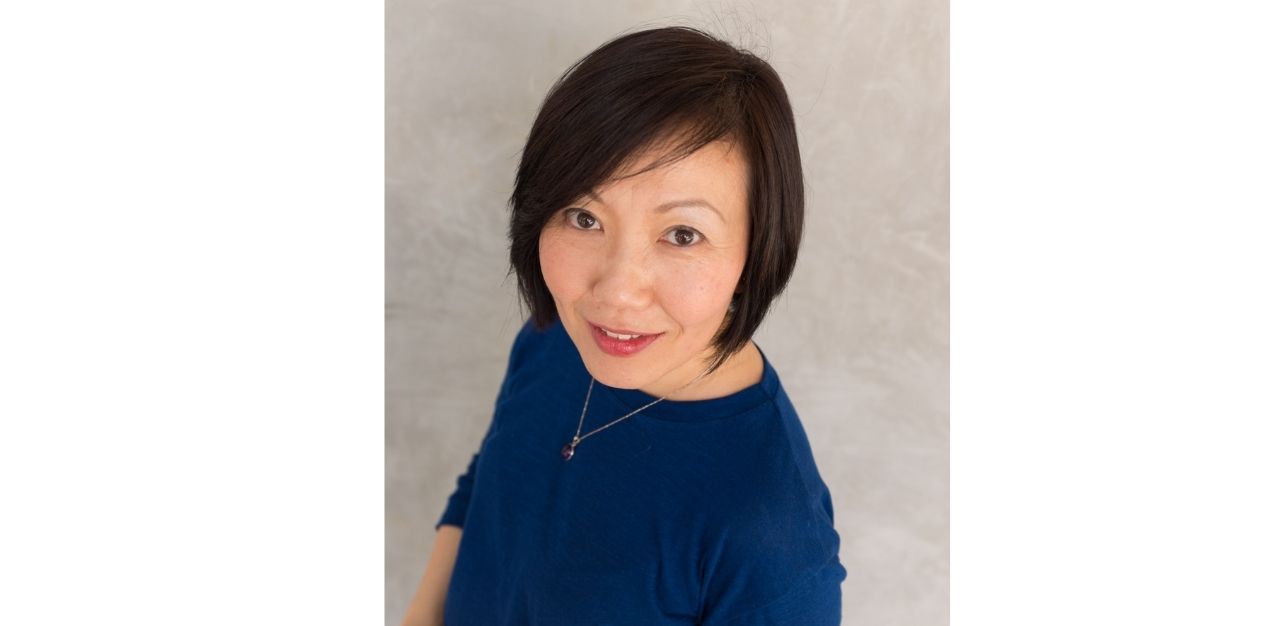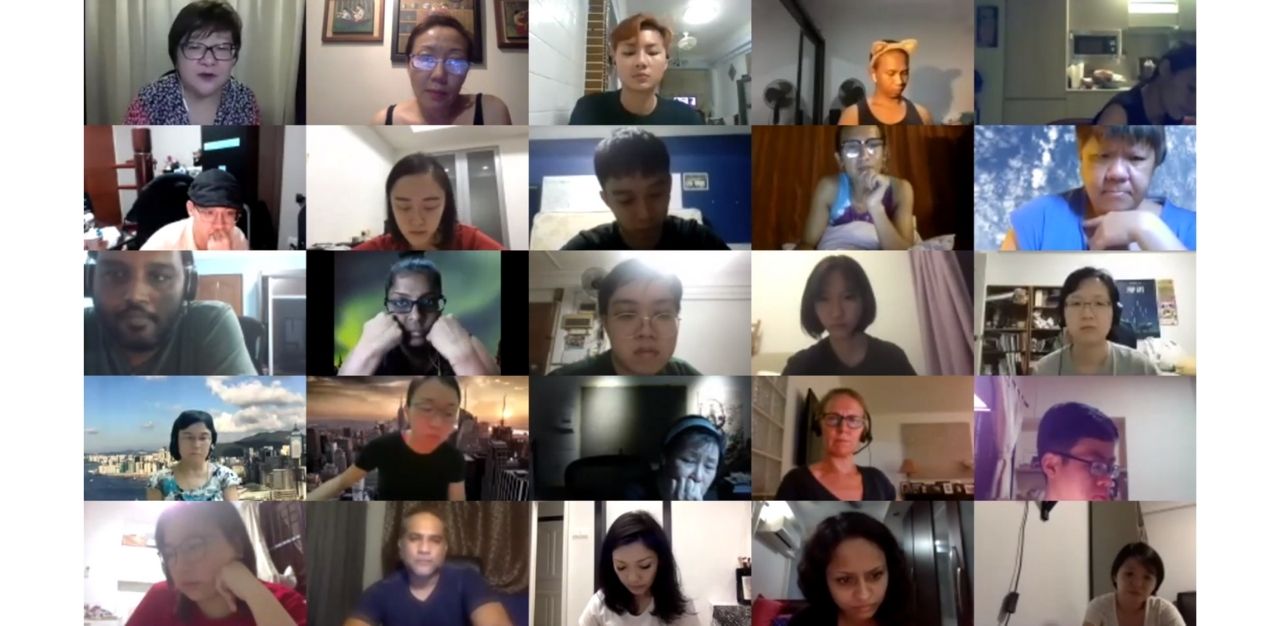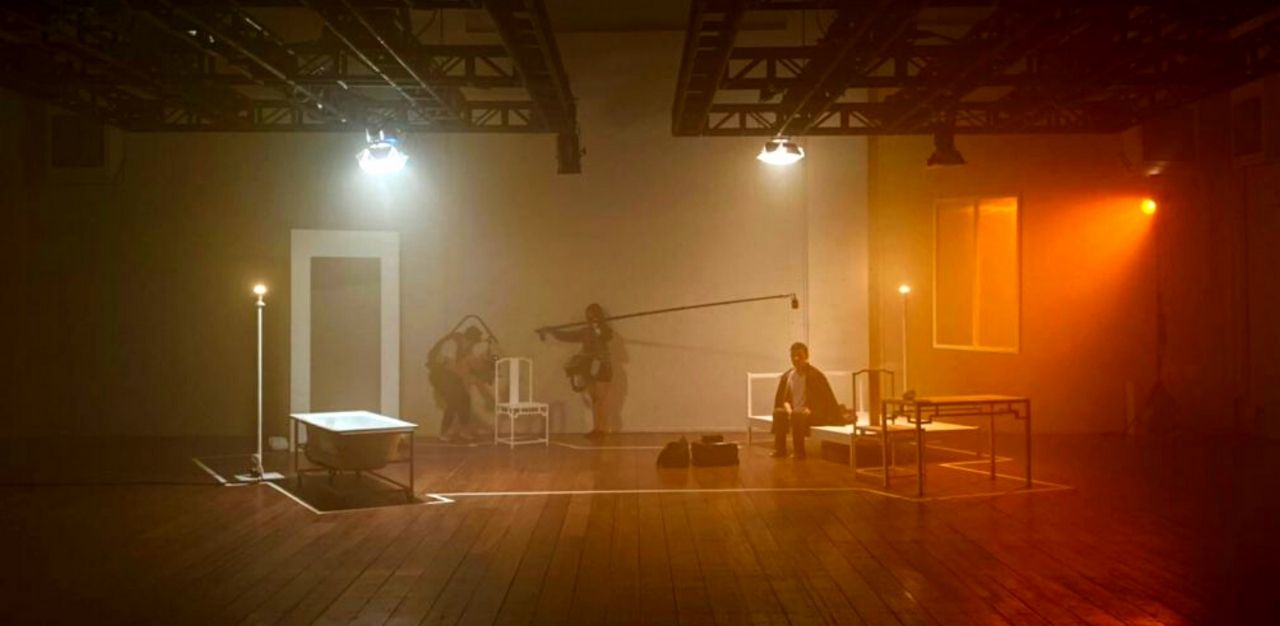T:>Works’ 24-Hour Playwriting Competition has been a ‘write’ of passage for many aspiring playwrights in Singapore. Nearly a quarter-of-a-century old, the annual playwriting competition was first created by T:>Works (then called Theatreworks) in the 90s, and has since evolved into a significant event in the Singapore literature scene.
The rules of the competition are simple. Participants (capped at 80) set aside 24 hours (17-18 July, starting at 11am) to write a play, tackling various challenges introduced by the organising committee along the way. Their final pieces will be judged blindly, and winners are offered attractive prizes, as well as a chance to stage their plays.
For the second year in a row, the 24-Hour Playwriting Competition will be held virtually.
Festival of Women N.O.W. (Not Ordinary Work) Artistic Director Noorlinah Mohamed, who took over the reins of running it in 2019, highlights the presentation platform How To Break A Window as one of her key contributions to T:>Works’ signature event. Ms Noorlinah conceptualised and helmed the showcase, staging it for the first time in 2020, as an “attempt to reimagine theatre in an ever-changing world.”
Given the competition’s longevity, Ms Noorlinah says that she was “mindful’ that it was a “legacy event” for T:>Works: “I think of [it] as the icing on the cake, where winners get to work with established playwrights, directors, and actors to breathe life into their texts as they get to see their work staged.”

The pros and cons of going virtual
In pre-pandemic times, a typical 24-Hour Playwriting Competition would have taken place in a venue that changed each year. Restrictions caused by the pandemic, however, meant that last year’s competition was forced to go digital.
Taking the new limitations in its stride, the T:>Works organising committee took the opportunity to plan the competition afresh. It introduced different types of writing stimuli to keep participants inspired and embraced the work-from-home setting by injecting new elements to the competition. Participants were invited to book slots for consultations with judges, to chat and brainstorm ideas. The team also stayed connected with the participants via WhatsApp, and made morning calls to wake the participants up from naps to continue with their work.
“We embraced their personal space as the site in which all participants convene, albeit separately, to write,” says Ms Noorlinah.

While some participants found being stuck in their homes more distracting, and preferred the struggle and discomfort that they experienced in the on-site version of the competition, Ms Noorlinah notes that going online also helped T:>Works appeal to contestants that might have been deterred from registering.
“For those who found it difficult to travel to an on-site space, those who require medical attention or special arrangements, the online competition suits them better, because they have immediate and easy access to their needs at home,” she says. “In some ways, going online has helped to create a more inclusive experience for contestants.”
Meals will also make a comeback, to further unite the participants writing in isolation.
Ms Noorlinah reveals that her team will be collaborating with Project Cookoh, an initiative by volunteers from ReadAble, to provide home-based cooked food delivered to the writers. “Food delivery will also act as a fun writing stimulus, which participants need to include in their scripts,” she adds.
Giving new voices a chance to shine
When asked what they hope to discover in this year’s competition, both Ms Noorlinah and Jean Tay, a third-time judge and the founding Artistic Director of Saga Seed Theatre, say that they are looking forward to finding new and unique voices.
“What we are looking for is always a sense of originality, a voice that is individual and original,” says esteemed playwright Ms Tay, who was a participant in an earlier season of the 24-Hour Playwriting Competition.
“We are looking out for writers who can make us care about their characters and can create – even in this short period – conflicts that engage the audience,” she explains.
“I love surprises, and nothing can be better than to be surprised by the ingenuity and imagination of these participants,” adds Ms Noorlinah, “We hope to find new gems of writers and exciting scripts for us to feature in our December showcase, How To Break A Window II.”

One of these budding new voices in search of a fresh experience is first-timer 19-year-old Sharifah Fatihah Aljunied (who prefers to be called ‘Dia’), who signed up in the over-18s category.
“I’ve always wanted to write plays ever since I entered drama school,” muses Miss Dia, “but the nature of this form/genre of writing has always daunted me. Hopefully, after this experience, the form won’t seem so scary anymore.”
Currently a theatre student at Nanyang Academy Of Fine Arts, Ms Dia says that she surprised herself when she gathered the courage to sign up for the playwriting competition alone.
“I wouldn’t say I’m competitive,” she shares. “I find it a little funny that I wanted to join this competition at all. I usually take my time with writing, sometimes a little too much time, so I’m completely new to the concept of finishing a full manuscript in 24 hours.”
To prep herself for the competition, Miss Dia is reading plays and penning down raw ideas, to give herself a sense of direction during the competition: “I will definitely be taking naps throughout the day and I will be equipping myself with a lot of brewed tea and coffee, if necessary. Just a bit of extra ammunition to keep me energised enough to survive this competition.”
When asked about her expectations with regards to the competition, Miss Dia says that she is aware of the dedication the competition will require from her. “One should expect a lot of focus (and shots of despair and joyous pain) when one has to sit down and write,” she says.
“I do hope to win something of course, but more than winning, I just hope to find my voice and solidify my place and identity in the art world.”
Returning to the stage
Like Ms Dia, the reigning champion from last year’s competition, Dr Wong Chen Seong, plans to take time out during the 24 hours.
“I definitely don’t recommend staying up for 24 hours! Take the time to rest, or else the quality of writing will suffer,” advises the 38-year-old doctor, who has participated at least fives times in the competition.

Outside of the theatre community, Dr Wong is an infectious diseases physician, with subspecialty expertise in HIV medicine. His work as a writer is largely inspired by his experiences as a medical practitioner.
“Medicine and writing have been part of my life for a very long time,” says Dr Wong. “The lives and experiences of the people I have had the privilege of caring for do sometimes percolate through to my writing. HIV, in particular, brings up so many rich themes and stories – of loss, of identity, of growth, of hope.”
Inspired by his own experiences with otherness and a vested interest in ghost stories, Dr Wong’s winning piece from the previous year, Third Eye, received a full staging at How To Break A Window, last December. Directed by former T:>works associate artistic director Casey Lim, the monologue, performed by Leong Seng Onn, follows the protagonist who returns home from abroad to visit his sick father, only to be quarantined in a haunted hotel room.
“Otherness is an identity I’ve always felt and lived – I don’t feel l fit comfortably in most circumstances or settings, and grappling with that has informed many of the choices I’ve made in real life, as well as in my writing,” shares Dr Wong.
“Third Eye was, in many ways, deeply personal for me, and the first complete script I’d written in about a decade. Playwrights like myself exist outside of the arts milieu, and our work gets produced opportunistically, so we can’t foresee any kind of artistic longevity.”

On why he keeps returning for more: “Because you don’t get this kind of experience writing in any other way,” explains Dr Wong. “For someone who does not do this for a living, it also gives me a reason to write, as well as a practical impetus to finish a piece of work. In pre-pandemic times, it was also a great opportunity to be holed up with writing friends and have a good time.”
Over the years, T:>Works’ 24-Hour Playwriting Competition has developed a community amongst repeat participants, who appreciate the camaraderie, as much as the chance to win.
“What I like best about the 24-Hour Playwriting Competition is not the competition itself. The competition injects excitement. But what I like best is the camaraderie,” enthuses Ms Noorlinah, “the sense of community, the relationships established through the course of the 24 hours.
“I love the gatherings during meal times where you get a chance to talk to the participants, get to know them and their interests, just chilling and hanging out,” she says.
More than inspiration and competition, writing is about discipline
Be it a play, novel, or even a poem, creatives are no strangers to the struggle of completing a piece of writing. While inspiration may be key to the process, T:>Works’ 24-Hour Playwriting Competition has proven time and again that focus and discipline are the key factors that put writers on the path to finishing their works.
“The focus is not just on reviewing these scripts that were written in 24 hours,” says Ms Tay. “It’s actually about seeing how these drafts can be further developed to reach their full potential. I’m glad that the competition is also a developmental journey with the writers of the winning plays.”
When asked who should sign up for the 24-Hour Playwriting Competition 2021, both Mses Noorlinah and Tay echo the sentiment that it is open to anyone with a passion to write.
“Come in as long as you have 24 hours to spare,” encourages Ms Tay. “It’s an open door for beginners and experienced writers alike. And at the end of it, because of the pressures of a deadline, you will have the first draft to a play.”
And since the “idea of writing… is too intimidating for most people”, she says that the competition is a “great starting point.” But adds that it could also appeal to experienced writers.
Affirms Ms Noorlinah: “This competition does not set out to chart a participant’s growth. It sets out to stimulate writers creatively, and carve out a moment in their lives where they stop doing anything else, but write.”
The prize is merely a bonus, she says, compared to the process itself, which channels time and commitment to the ultimate goal of writing.
“The competition is like a boot camp, where our community of writers, directors, and performers gather to commit their next 24 hours to finish a piece of writing,” she says. “For that dedicated time, we intensely commune and conjure magic through words.”
But do not be afraid to throw ideas out of the window, even if you have started on them, advises Dr Wong, 2020’s winner: “I started from zero halfway into the 24 hours, last year. I think it’s useful to not be wed to first ideas, and be willing to tear out pages where needed.”
Ms Noorlinah leaves loyal and dedicated fans with a teaser for what to expect from a competition that continually evolves to keep things fresh and stimulating.
“We’d like to experiment with hybridity,” she says. “And we have a plan for next year that brings the on-site and online elements together. But sorry, we whisper it to you end year, ok?”
Interested? You can sign up for T:>Works’ 2021 24-Hour Playwriting Competition here.
TheHomeGround Asia and T:>Works are collaborating to film a documentary short of the behind-the-scenes goings-on of the competition, for posterity. The 10-12 minute video will be shown later this year, as part of the How To Break A Window showcase in December. More details will be announced later in the year.
Join the conversations on TheHomeGround Asia’s Facebook and Instagram, and get the latest updates via Telegram..




























